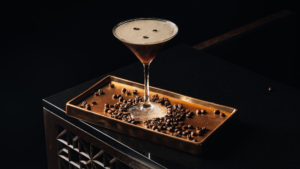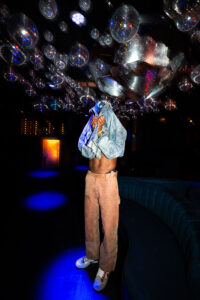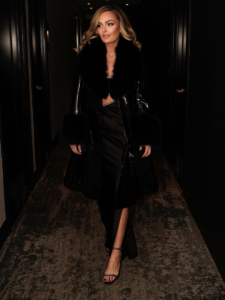Celeste Durve Reveals What Really Gets You Into VIP Rooms
- By: Julianne Elise Beffa
Inside the Velvet Rope…
Walk up to the velvet rope at almost any high-wattage party in New York or Los Angeles and you’ll notice the same thing: nervous energy. Who’s going to get waved in, who’s going to get the dreaded head shake, or the “not tonight,” and who’s going to stand outside refreshing their Instagram DMs, hoping someone sends them a name to drop.
Behind that rope is a world of its own, and at the center of it all is the door host. It’s one of nightlife’s most misunderstood, mythologized, and, let’s be honest, feared positions. And no one embodies it better than Celeste Durve. Founder of VIPER and Smart Is Sexy, Durve built a career defining what “exclusive” actually looks and feels like in 2025.
Durve isn’t interested in being the bouncer stereotype. She sees herself as a curator- someone crafting energy as much as a guest list. In her words:
“A good door host is reading the room, managing egos, communicating with security, and staying ten steps ahead. It’s more chess than checklist.”
So what does it really take to get into the most exclusive rooms? And how has “the door” evolved now that every velvet rope is also a livestream? LOOP Mag sat down with Durve for the ultimate insider breakdown.
It’s Not Just Who You Are—It’s How You Show Up
Forget what you’ve seen on TV: it’s not about flashing a blue checkmark or name-dropping a DJ. Durve says the real key to entry is energy.
“For us, it’s never just about who’s hot or who has followers,” she explains. “We think about the crowd as a whole: how it feels when you walk into the room. Are people open? Are they stylish? Are they contributing to the energy or just there for content?”
The mistake people make? Treating the door as a power play.
The snobby, rude ‘do you know who I am’ attitude doesn’t work on me,
Durve continues. “Being intentional means curating for connection and vibe, not just status. That’s the difference.”
In other words, exclusivity isn’t about exclusion- it’s about maintaining a certain flow. Show up friendly, put-together, and engaged, and your odds are way better than flexing a résumé or follower count.
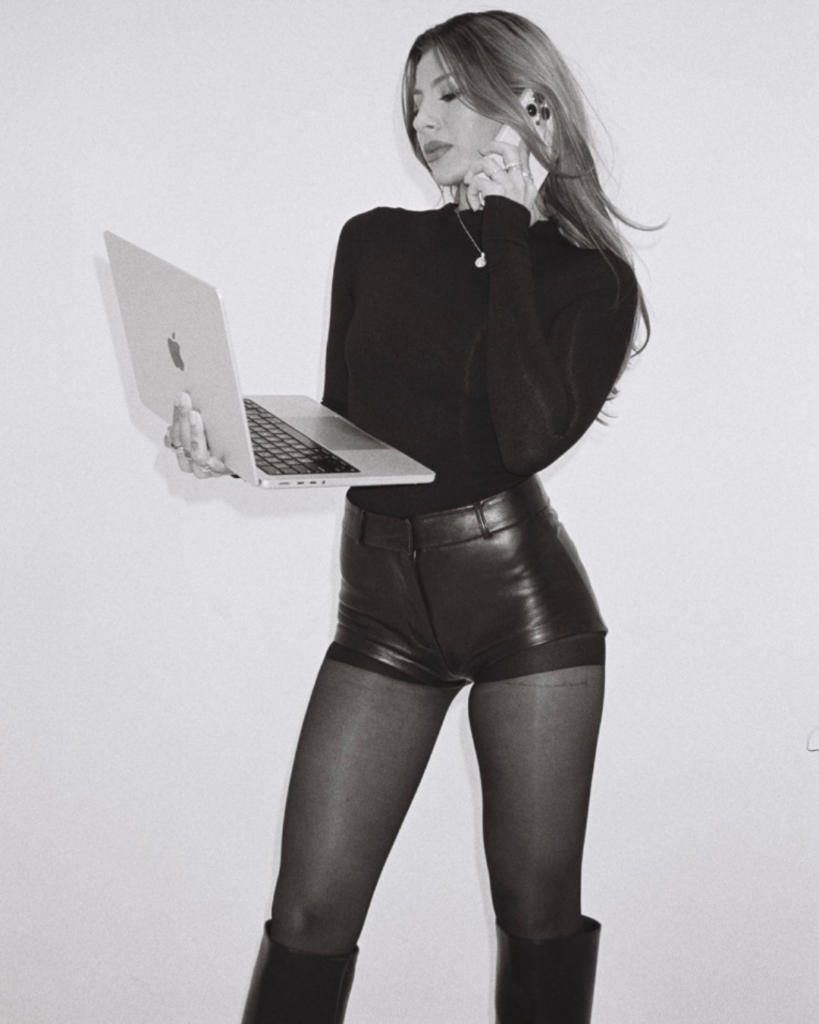
Door Culture, Then vs. Now
If you’re nostalgic for the days when paparazzi weren’t camped outside every club, you’re not alone. Durve says the past decade has completely flipped door culture on its head.
“Five or ten years ago, nightlife was built around exclusivity in a very quiet, private way. Celebs and A-listers would enter through side doors, no cameras, no press. It was about discretion and intimacy. Now, everything is filmed. The front door is content.”
What used to be a threshold into privacy is now the main stage. Who’s allowed in, and what they’re wearing, is instantly broadcast. TikTok has made the velvet rope into a runway, a meme machine, a brand activation.
And that’s the other shift: the rise of branded nightlife. “Brands have become the sponsors and producers behind these events, and they all want exclusivity at their events too,” Durve says. “But they also need to be inclusive as a brand. So now you have this layered dynamic where brands want the event to look exclusive, but also be seen everywhere.”
It’s a paradox: you need a crowd that looks like the unattainable dream, but one that also makes sense on social media feeds and aligns with the sponsor’s story.
The New Criteria: Beyond “Hot”
So what makes the cut now? If you think it’s just about being beautiful and famous, Durve wants you to think again.
“It comes down to energy. And it’s about how the room feels,” she says. “We look for people who are stylish, social, curious, and present. It’s about creating a space where people want to engage, not just attend.”
This means the right mix of influencers, creatives, industry insiders, and even wild cards. The best nights, she says, happen when people are talking, laughing, moving around- not just standing in corners filming content.
“A great crowd has movement, conversation, and a little magic. That’s what we aim for.”
The Myth of the Gatekeeper
Durve is quick to point out that door hosts get a bad rap. To outsiders, the role looks like saying yes or no all night. But in reality, it’s a juggling act of diplomacy and prediction.
It’s less about power and more about balance. Keeping a line moving while making sure the inside isn’t overcrowded. Managing A-listers and plus-ones without letting the vibe get diluted. Knowing when to say yes to the unknown kid in vintage Margiela because he’ll be dancing all night, and no to the guy with 10 million followers who just wants to sit at a table and scroll.
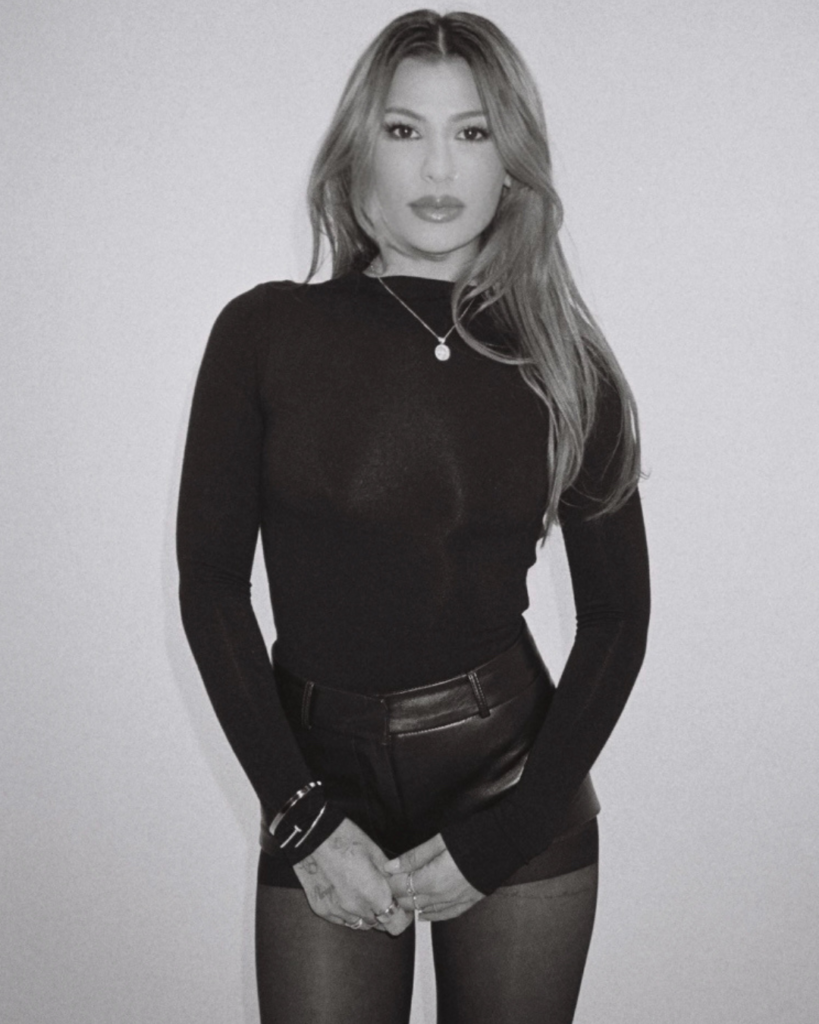
The Future of the Rope
With nightlife becoming more branded, more documented, and more global, where does guest curation go from here? Durve predicts a swing back toward intimacy.
“I think we’ll see more intentional micro-communities forming,” she says. “As nightlife becomes more documented, people want to be in spaces that feel authentic and private again.
Guest curation will shift from just ‘who’ to ‘why.’
Why are these people in this room together? What’s the story we’re telling with this guest list?”
This could mean smaller, invite-only rooms inside bigger parties. Or hyper-specific guest lists where everyone shares a creative discipline, a subculture, or a mission. As big, splashy events get more performative, the truly powerful moments will be the ones that feel human, spontaneous, and unscripted.
Insider Advice: How to Actually Get In
Of course, LOOP had to ask: what’s the real hack for getting past Celeste Durve at the door? Here’s some rapid-fire advice:
- Don’t flex. Ego kills your chances.
- Bring good energy. Be open, present, and engaged.
- Look the part. Style matters- it’s visual curation.
- Travel light. Fewer plus-ones means easier entry.
- Be social, not just visible. A great guest contributes to the vibe, not just the content.
Why It Matters
For some, the politics of the velvet rope feel outdated in a world that talks endlessly about inclusivity. But Durve argues guest curation isn’t about shutting people out- it’s about protecting the experience inside.
“The goal isn’t to make people feel small,” she says. “It’s to make sure the energy inside feels alive. When the mix is right, it’s unforgettable. That’s the real magic of nightlife.”
And maybe that’s the ultimate secret from the front door: exclusivity isn’t about status, it’s about intention. The rooms that matter aren’t the ones with the most famous faces- they’re the ones where strangers become friends, where style sparks conversation, and where the energy feels electric the second you walk in.
Related | Sober Curious & Still Going Out in LA


